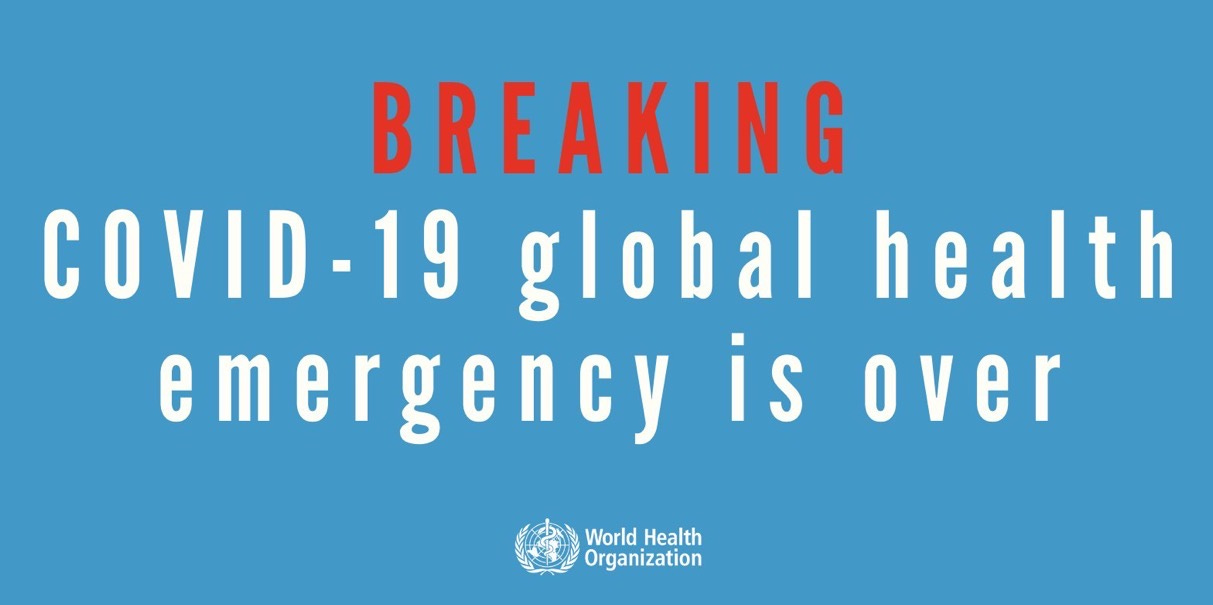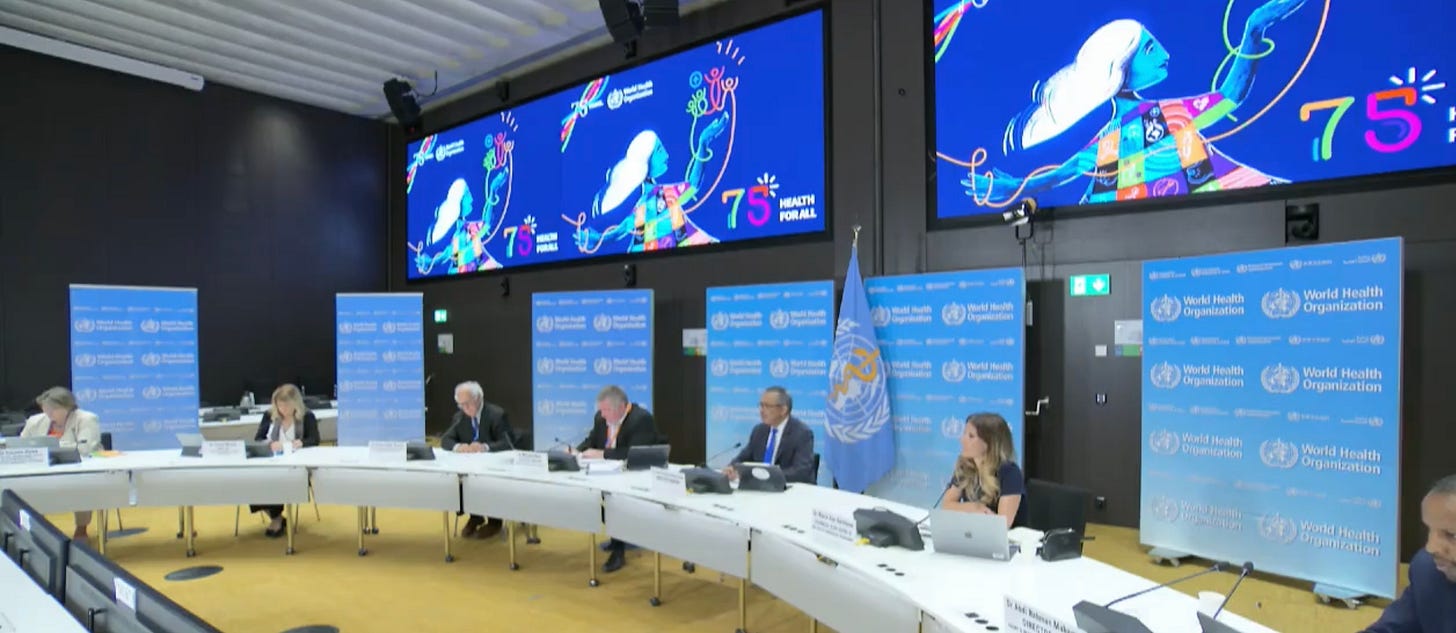"It is therefore with great hope that I declare COVID over as a global health emergency.”
Three years and three months after the pandemic began and the World Health Organization declared the coronavirus a Global Health Emergency, the highest level of alarm under international law, the global health agency has now rescinded the designation.
WHO Director-General Dr. Tedros Adhanom Ghebreyesus announced the news at a press conference Friday afternoon.
"For more than a year, the pandemic has been on a downward trend, with population immunity increasing from vaccination and infection, mortality decreasing and the pressure on health systems easing. This trend has allowed most countries to return to life as we knew it before. For the past year, the Emergency Committee, and WHO, have been analyzing the data carefully and considering when the time would be right to lower the level of alarm. Yesterday, the Emergency Committee met for the 15th time and recommended to me that I declare an end to the public health emergency of international concern. I have accepted that advice.”
Dr. Tedros says the decision was not taken lightly.
"I emphasize that this is not a snap decision. It is a decision that has been considered carefully for some time, planned for, and made on the basis of a careful analysis of the data. If need be, I will not hesitate to convene another Emergency Committee should COVID once again put our world in peril.”
However, Dr. Tedros warns that the coronavirus threat continues and it is now here to stay.
“That does not mean COVID is over as a global health threat. Last week, COVID claimed a life every three minutes and that’s just the deaths we know about. As we speak, thousands of people around the world are fighting for their lives in intensive care units. And millions more continue to live with the debilitating effects of long-COVID. This virus is here to stay. It is still killing, and it is still changing. The risk remains of new variants emerging that cause new surges in cases and deaths"
He cautions now is not the time to ignore the virus.
"The worst thing any country could do now is to use this news as a reason to let down its guard, to dismantle the systems it has built, or to send the message to its people that COVID is nothing to worry about.”
As for what lies ahead, Dr. Tedros says health authorities will have to transition from emergency mode to managing the virus as they would any other infectious disease, like influenza.
The WHO will also continue to have a role going forward.
“On the Committee’s advice, I have decided to use a provision in the International Health Regulations that has never been used before, to establish a Review Committee to develop long-term, standing recommendations for countries on how to manage COVID on an ongoing basis.”
Dr. Tedros says the tireless work and dedication of healthcare workers and the innovators behind groundbreaking vaccines helped save countless lives and played a huge part in getting us to this moment.
“And the sacrifices that all of us have made as individuals, families, and communities to keep ourselves and each other safe.”
But Tedros says this is also a time to take stock of the events of the last three years and what we can learn from them.
“At another level, this is a moment for reflection. COVID has left and continues to leave, deep scars on our world. Those scars must serve as a permanent reminder of the potential for new viruses to emerge, with devastating consequences. One of the greatest tragedies of COVID is that it didn’t have to be this way. We have the tools and the technologies to prepare for pandemics better, to detect them earlier, to respond to them faster, and to mitigate their impact. But globally, a lack of coordination, a lack of equity and a lack of solidarity meant that those tools were not used as effectively as they could have been. Lives were lost that should not have been. We must promise ourselves and our children and grandchildren that we will never make those mistakes again.”
In the last three years, the pandemic has turned out world upside down. There have been almost 7 million reported deaths, which is likely very underreported. The WHO stresses the real death toll is likely much higher with the virus possibly claiming closer to 20 million lives.






This is good information to have. It’s not a pandemic but let’s not fool ourselves , Covid is here to stay.